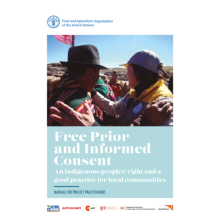Land Library
Welcome to the Land Portal Library. Explore our vast collection of open-access resources (over 74,000) including reports, journal articles, research papers, peer-reviewed publications, legal documents, videos and much more.
/ library resources
Showing items 10 through 18 of 54.Land is the most important asset for many rural Liberian women and men, and is often a family’s primary source of cash income, food and nutritional security, health care, and education.
This study provides a case study of the mango value chain in Kenya and seeks to better understand key linkages between land rights and project outcomes.
Violent conflicts between nomadic herders from northern Nigeria and sedentary agrarian communities in the central and southern zones have escalated in recent years and are spreading southward, threatening the country’s security and stability.
This report consolidates findings from previous activities by FAO and other stakeholders, and identifies in the four focus countries (Ethiopia, 
Until recently, the Pokot in the highlands of the Baringo area in Kenya have practised semi-nomadic pastoralism. Today they are rapidly sedentarizing and in many areas suitable for farming, they are adopting rain-fed agriculture.
This topic guide for government agencies, service providers and other practitioners examines various dimensions of governance that are key to deliver appropriate benefit-sharing, ensure sustainable exploitation, minimise conflict over access and control, and maximise the contribution of resources
Pastoralists are one of the most poverty stricken and underdeveloped existing human groups in the world. Until now, having remained practically invisible in the eyes of international law, it is desirable to open a debate concerning the recognition of their rights.
Green energy is expected to be a significant part of the solution to Africa’s energy problems. But what new problems may arise if progress exacts at a high cost?
This manual is designed to assist development organizations to respect the right to FPIC when developing and implementing projects affecting Indigenous Peoples.









